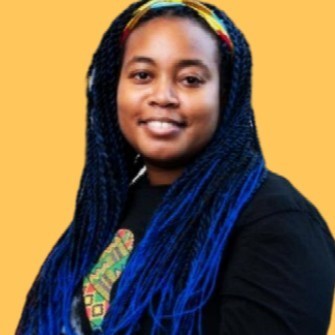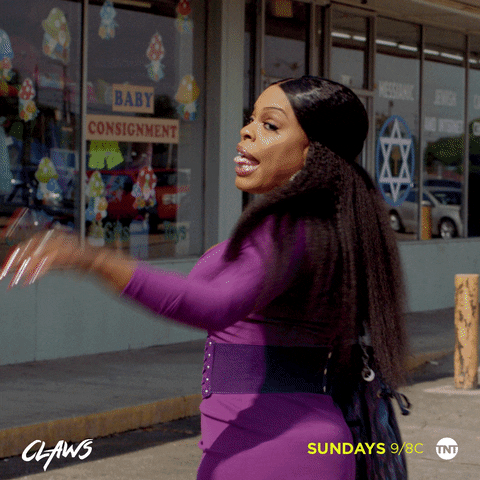Hey there! Happy new year, we are already up and running. I hope you and yours safely made it. Joy Thompson, my Sierra Leone sister and name twin, asked me a great question the other day which sparked this post. We watched The Emmys while writing it, so this post is also going to celebrate a legend of TV whose confidence I hope to have an ounce of one day. As always and first of all, a qualifier:
Someone is going to look at this and say, huh? Fair. This doesn’t apply to everyone. I remember once asking my teammate four jobs ago if he ever had confidence dips and this man was confused. He taught me a lot about work dynamics and Allen - you will always be famous to me for that. All this to say, take what works for you, leave what doesn’t. Most times, this is just my public career diary 💁🏽
So how do you as a shy and reserved (two different things) person have impact at work and are recognized for said impact?
The “show, don’t tell” doesn’t really work in a capitalist workplace. I’ve been there, done that, built a house, and have a set of condos. STILL. It’s continual self-work. Waiting for people to see your work is not going to work. If you, like me, are a hermit, you still gotta show the work.
What is Your Medium?
Here’s a simple premise I employ while thinking through the anatomy of a job. Work - in any industry - comes down to understanding your problem area, learning skills to approach it, applying that knowledge, and communicating the value of said applications to the person whose day you’ll make by eliminating the problem.** In an ideal environment there are ample chances to practice the first three, but the last one is not always a given. For example, in a role like data engineering, you are likely not giving a lot of presentations even though you write pipelines that make other people’s jobs easier (which yay hermit me ![]() ).
).
You therefore need to figure out which medium and method of communicating you’re comfortable with and commit to honing that communication device as a skill. And why pray tell, do you need to do this?
Think about the loudest or most talkative co-worker you have. They are not always the most cerebral member of the team. Now think about the hardest working person on your team who does the best work. Those “the standard is the standard” people (shout out to Mike Tomlin). They may not always be the most confident or loudest person in the room. There are rare moments where you get a two in one. But if you thought of two different people just now, the goal is to strive for the standards of the latter while maintaining some microphone vibes of the former. In your own way! In the words (more in this thread) of the living legend, Angie thee Jones:
“Be your biggest advocate. Do not depend on others to notice you’re doing a good job. You show then TELL them you’re killing it! Unfortunately, modesty and humility work against us. Don’t be arrogant, but do be confident.”
Mine is (you may have guessed it by now) ![]() writing
writing ![]()
Now you might wonder - Sia, what else is there to do with communicating if you’re not gonna talk other than writing? One of my favorite (and most brilliant) co-workers is great at teaching. They are able to impact everyone by sharing knowledge of the systems they build and maintain because they take time to share that knowledge by answering questions. And when I say answers questions, I mean you get all the vantage points. You can tell they put a lot of thought and care into researching, understanding, and building. Shout out to Andrew - I benefit from that sharing a LOT. They have become an authority on systems and domain knowledge because of how they share information. Andrew has also created courses for people to learn things from. How dope is that? Some other ways (and an extension of this) is creating mini tools that make other people’s jobs easier because you noticed a problem, or recording “how to” videos and sharing when you notice a gap to fill. So see, it’s not just talking and writing.
Speaking of, writing for me comes in the form of documentation, architectural diagrams, and asking questions. It’s story construction and storytelling. I’ve spent a good chunk of the last couple of years researching systems in order to build data pipelines to unify systems that were not always talking to each other. I live at the intersection of systems - a neighborhood that unlocks information about use cases that may not have been thought of during design phases. It also gets me in rooms sharing knowledge - a great way to network and learn about other priorities at your company.
Some other ways writing has allowed me to appreciate my impact on projects and folks is through how people represent and/or perceive me when I’m not even in the room. I’ve had quite a few folks tell me - “hi nice to e-meet you (we’re remote lol), I read something you wrote” or “that diagram you created really helped me visualize and understand system x”. Or my favorite - “hey you’re the one who asked that question - that was really helpful”. The same teacher colleague above once shared encouraging feedback to keep asking questions because some folks may not be comfortable doing the same. Not only do they learn by reading through, but asking in public creates a safe learning environment for them to do the same. I’m paraphrasing, but you get the idea. That’s huge - now not only are we showing competence, but we’re also positively impacting org culture. HUGE compliment. (Yes, I cried reading it ![]() )
)
OK, but what else?
Now don’t get me wrong - I still get hindered to move because of my shyness and I’m sure my reticence to speak up or acknowledge wins or even accept compliments :bang_bang: doesn’t help. I’m still working on it, and realize we can’t write ourselves into an Oscar winning screenplay. Another thing to keep in mind is the “honing your medium” part. I’m not the most effective writer - at least not where I’d like to be. If you’re still reading, conciseness is not my ministry and it’s one aspect of sharing information I’m working on too. So either way, you still have to do the work, show the work, and do the work of showing the work so that your show and tell is effective. Don’t be too hard on yourself as you figure it out (also note to self). And when you do, don’t forget to celebrate yourself for it - I just learned this from Niecy Nash-Betts, EMMY WINNER 💅🏽 💅🏽. This moment below is worth your screen time minutes.
I hope this was somewhat valuable, and that your year has more roses than thorns in it ![]()
** Makeshift footnote for newbies: If you’re a newbie, do this. Learn something, find a problem you’ve always wanted to solve, build a project that is valuable in some way or makes a small dent in attempting to solve the problem, and share how your attempted solution improves upon what was there before.


